Social Emotional Learning Teaching Resources
Are you on the hunt for social emotional learning activities, printable PDFs, and more to bring SEL to life in your primary lessons this school year? The list of academic benefits of SEL instruction is a mile long, and the Teach Starter teacher team has created a robust collection of social and emotional learning resources made with teachers – and your students — in mind.
We've made planning your social-emotional learning lessons simple with printable SEL worksheets and digital social and emotional activities designed specifically for the needs of primary school students. Each resource in this collection has undergone rigorous review by the expert teachers on our team to make sure you'll be comfortable passing them out in the classroom or sending them home in a student's bag.
Pardon us if we're sharing something you already know (feel free to skip right to the social emotional learning activities!), but if you're new to incorporating SEL into your classroom, you may need a quick refresher! Read on for a guide from our teacher team!
What Is Social-Emotional Learning?
The most common social-emotional learning — or social and emotional learning — definition describes SEL as 'the process through which all young people and adults acquire and apply the knowledge, skills, and attitudes to develop healthy identities, manage emotions and achieve personal and collective goals, feel and show empathy for others, establish and maintain supportive relationships, and make responsible and caring decisions.'
It's a bit of a mouthful, but essentially social and emotional learning covers five core competencies:
- Self-Awareness
- Self-Management
- Social Awareness
- Relationship Skills
- Responsible Decision Making

Where Did Social Emotional Learning Come From?
Teachers have been teaching many of the skills that now fall under the social and emotional learning curriculum for centuries. It's always been our goal to help shape little minds to be caring, productive, and engaged citizens.
But the roots of what we now consider SEL can be traced back to a project in the New Haven, Connecticut schools in the United States where school administrators worked with Yale University researchers, parents, mental health workers and teachers to refocus not just the school's academic programs but their social ones too. The project started in the 1960s at two schools considered 'underperforming,' and by the 1980s, these same schools had academic scores that were at the top of American school rankings.
From there, the K-12 New Haven Social Development program was born, establishing a framework for incorporating social and emotional learning into the curriculum. Meanwhile, the non-profit Collaborative for Academic, Social, and Emotional Learning (CASEL) was born in 1994, helping to really bring the term 'social and emotional learning' into the zeitgeist.
CASEL was born out of the New Haven projects and helped shape the official definition of SEL listed above in 1997. It now works to expand SEL in schools around the globe.
Why Is Social-Emotional Learning Important?
Not sure you have time to fit all of this in alongside the standards that you're preparing students to meet? A solid social and emotional learning curriculum will help students with everything from managing emotions and developing coping skills to setting positive goals, engaging in positive relationships and solving problems effectively — all important competencies for your classroom.
The importance of SEL is hard to overstate, but here are a few core benefits:
- Promote mental health and well-being — Teaching social and emotional lessons in the classroom can help students develop the skills they need to manage their emotions, build positive relationships and cope with stress and challenges. It's a small step toward better mental health for all.
- Improve academic performance — There's strong research showing that students who have strong social and emotional skills are more likely to be engaged in learning and perform better academically.
- Create a positive classroom culture — Teaching social and emotional lessons can help create the kind of classroom culture where students feel safe, respected and supported — exactly what we all strive for!
- Prepare students for life after school — Social and emotional skills are essential for success beyond the classroom, be it at home in the immediate future or in uni or the workforce. Teaching these skills helps students be better equipped to handle the challenges they will face.
- Address specific social and emotional needs — Teaching social and emotional lessons can help address students' specific needs, such as building self-esteem, managing emotions and developing empathy for others. This can also help to create a more inclusive and equitable classroom where all students feel respected and valued. It's also good for your overall classroom management.

How to Teach Social and Emotional Lessons
There's little question that there's value in social and emotional learning, but how do you actually teach it? There's no simple answer here, as the exact methodology will differ based on year level, individual student needs and even your classroom dynamics!
That said, here are some strategies from our teacher team to keep in mind as you consider how you're incorporating the components of SEL in your instruction:
- Modelling — This is likely no surprise — we are our students' role models in the classroom for so much. Don't underestimate the value of your own active listening, displays of empathy and self-regulation, and other skills that are essential for your students' social and emotional development.
- Classroom Culture — Establishing a safe and supportive learning environment where students feel respected, valued and empowered goes a long way. Fostering a sense of community, promoting positive communication and encouraging collaboration and teamwork are all helping kids build their SEL quotient!
- Integration — Of course, you can (and should) have explicit instruction on SEL, but you can also incorporate SEL concepts into your core subject lessons. Discuss emotions related to a character in a book or working on group projects that require collaboration and communication. If you're teaching maths, emphasise the importance of perseverance and problem-solving skills. Teaching HAAS? Discuss empathy and the ability to understand different perspectives. It all comes together!
- Plus Plan
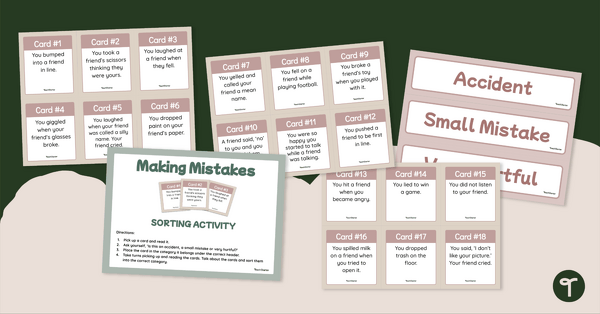
Making Mistakes – Sorting Activity
Help your students recognise different types of mistakes and discuss ways to learn from them with this SEL activity.
- Plus Plan
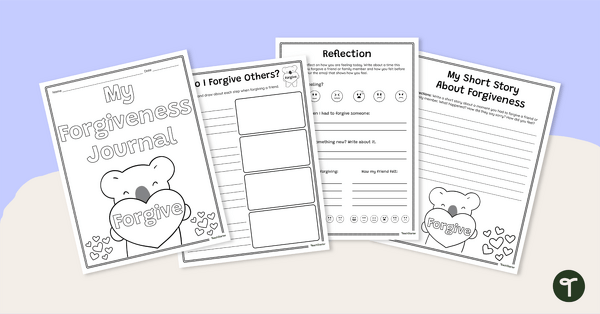
My Forgiveness Journal – SEL Worksheets
Teach students about the importance of forgiving others with this printable forgiveness journal.
- Plus Plan
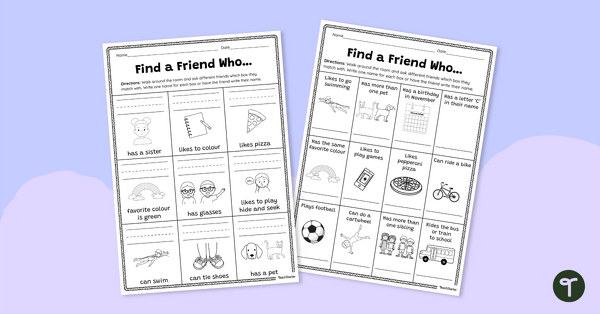
Find a Friend Who…Worksheet
Encourage students to engage with different classmates and learn about others with this whole-class activity.
- Plus Plan
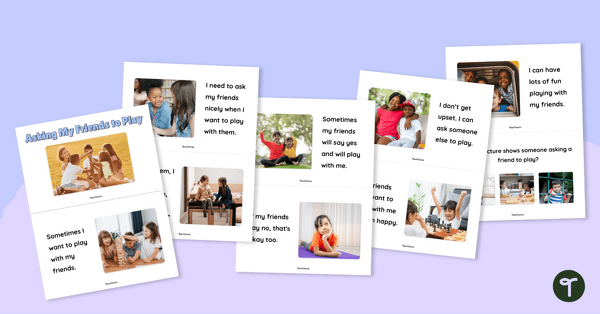
Asking My Friends to Play Mini-Book
Learn about appropriate social skills when asking friends to play with this printable mini-book.
- Plus Plan
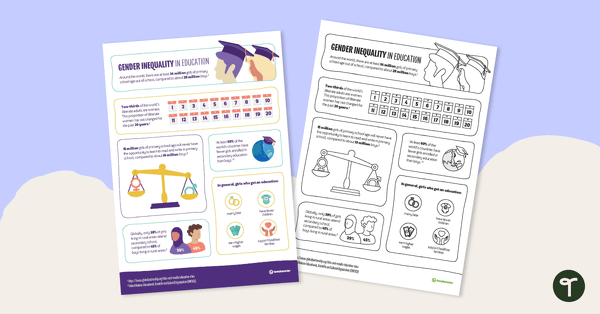
Gender Inequality in Education Infographic Poster
An infographic displaying important facts and statistics about gender inequality in education.
- Plus Plan
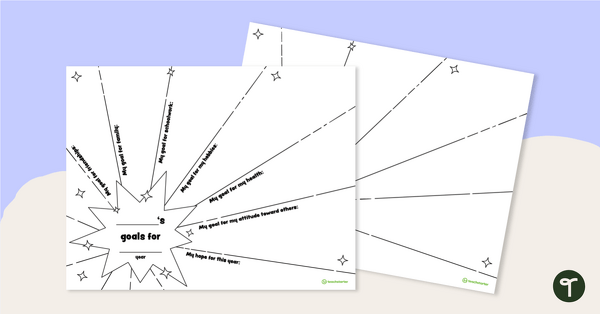
Goal Setting Firework Template
Prompt students to set various personal and academic goals at the start of the new year with our fireworks-themed goal-setting template.
- Plus Plan
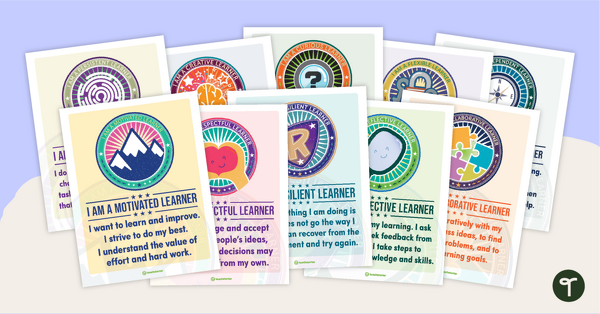
Learning Dispositions Poster Pack
Teach your students about learning dispositions with this set of 10 posters.
- Plus Plan
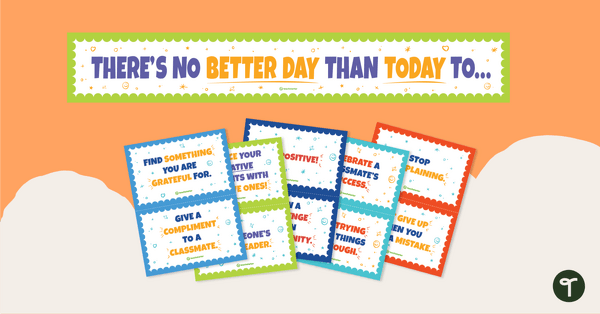
Social and Emotional Skills Classroom Display
A classroom display to use when working on social-emotional skills.
- Plus Plan
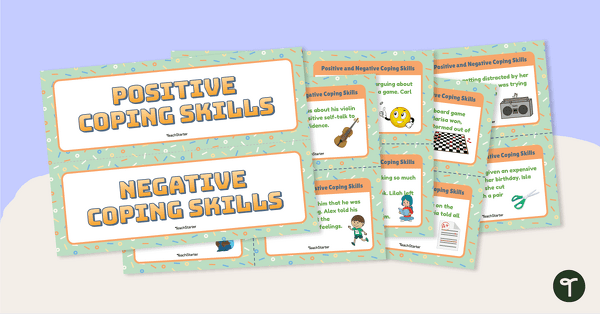
Positive and Negative Coping Skills – Sorting Activity
Explore the difference between positive and negative coping skills with these real-life scenario sorting cards.
- Plus Plan
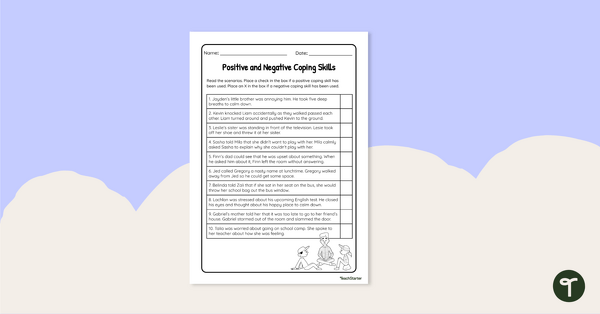
Positive and Negative Coping Skills Worksheet
Identify positive and negative coping skills with this real-life scenarios worksheet.
- Plus Plan
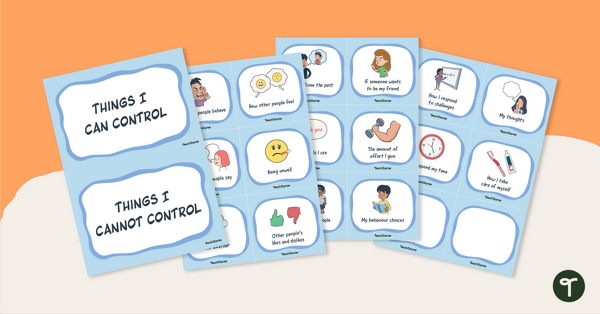
Things I Can and Cannot Control - Sorting Activity
Help students identify things in life they can and cannot control with this interactive sorting activity.
- Free Plan
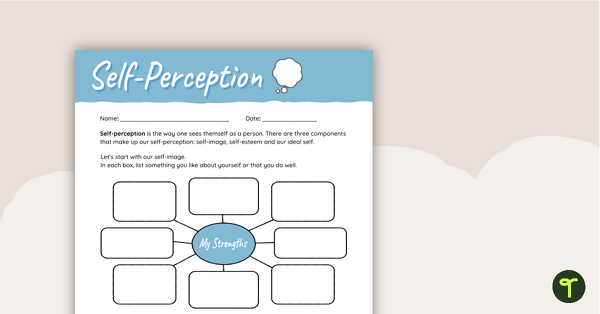
Self-Perception Worksheet
Identify strengths and areas of growth by asking students to reflect on their self-image, self-esteem, and ideal self.
- Plus Plan
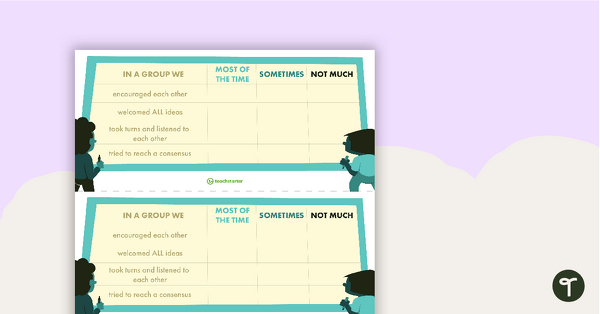
Teamwork Reflection Checklist
A checklist for students to use when evaluating how well they have worked in a group.
- Plus Plan
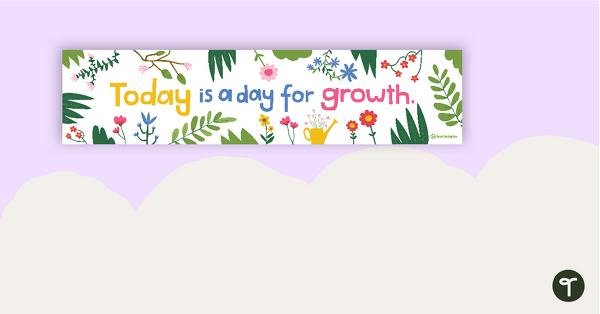
Growth Affirmation Display Banner
A beautifully designed growth affirmation display banner for the classroom.
- Plus Plan
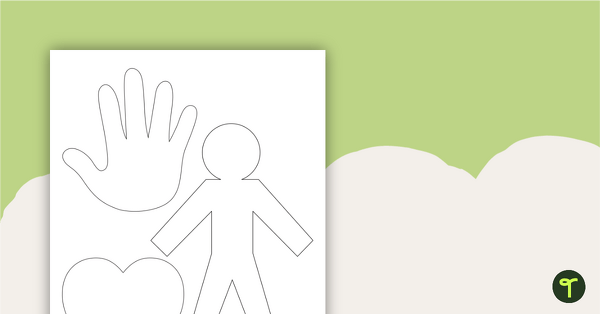
Diversity Craft Templates
Prepare for your diversity-themed lessons and more with 3 versatile black and white craft templates.
- Plus Plan
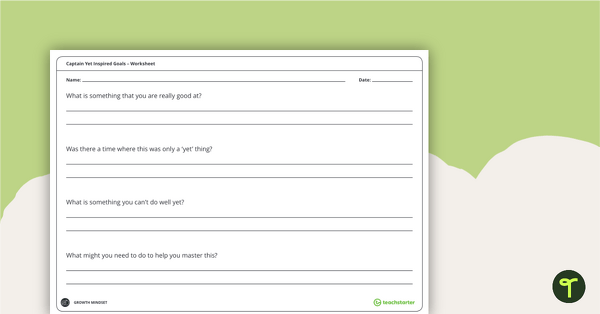
Growth Mindset Inspired Goals – Template
A reflection template for students to use their strengths and Captain Yet's strategies to achieve their goals.
- Plus Plan
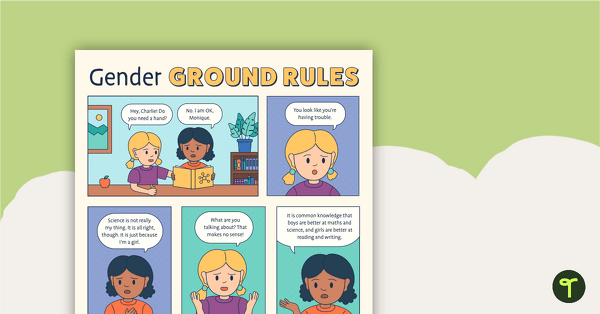
International Women's Day Gender Ground Rules – Comic
A two-page comic that shows an example of a gender stereotype about learning abilities.
- Plus Plan
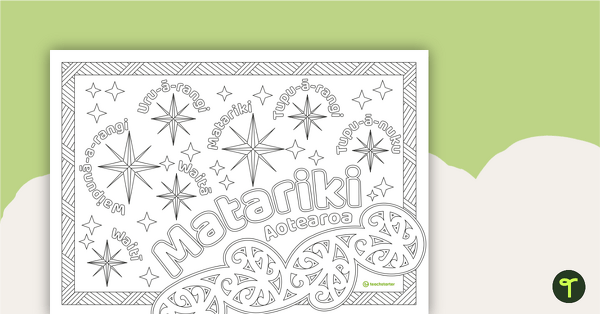
Matariki – Mindful Colouring Sheet
A mindful colouring-in worksheet to celebrate Matariki, the Māori New Year celebration in Aotearoa, New Zealand.
- Plus Plan

Easter Egg Basket Mindful Colouring In
Easter egg basket mindful colouring sheet for children to enjoy.
- Plus Plan

Easter Egg Mindful Colouring In Sheet
Easter egg mindful colouring sheet for children to enjoy.
- Plus Plan
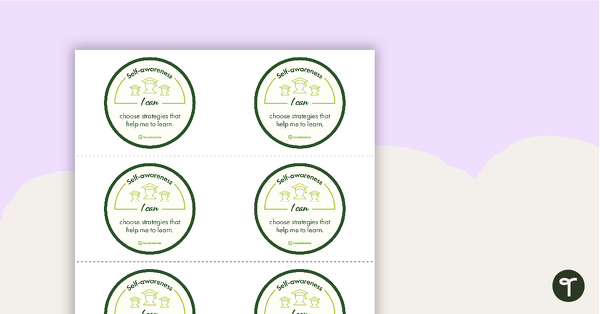
Personal and Social Capability - Self-awareness Badges
A selection of 7 students badges that celebrate student success in the area of self-awareness.
- Plus Plan
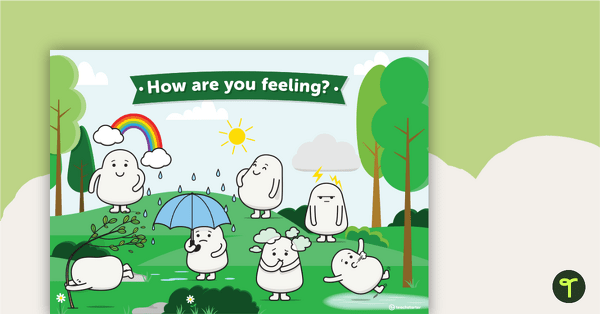
Weather Feelings - How Are You Feeling? Poster and Flashcards
A visual resource to help students verbalise how they are feeling.
- Plus Plan
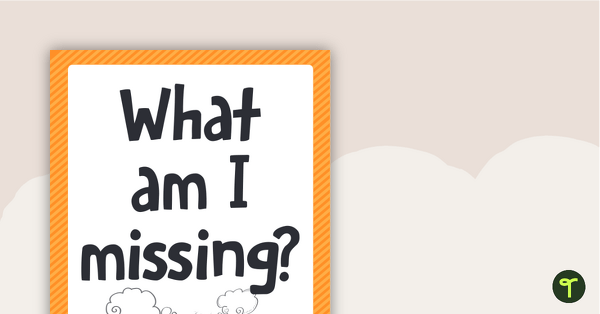
Positive Growth Mindset Posters
A set of 10 positive growth mindset posters to display in the classroom.
- Plus Plan
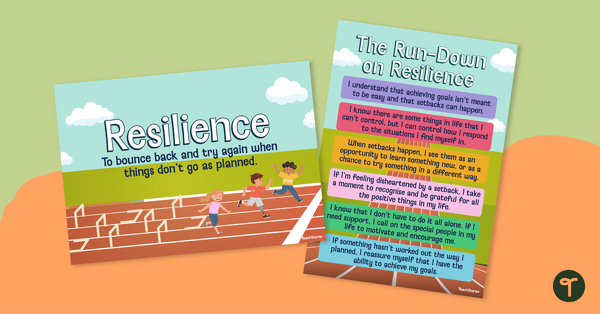
Resilience Posters
Teach students the meaning of resilience with these beautifully designed resilience posters for your primary school classroom.
- Plus Plan
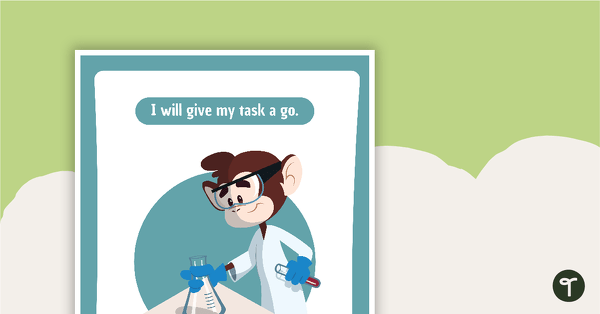
The Science of Independent Learning - Individual Posters
Individual posters with sequential stages to help students learn independently.
- Plus Plan
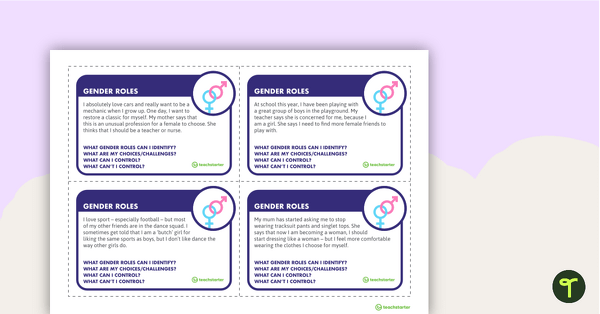
Social Strategies Gender Roles - Task Cards
A set of 16 social strategy scenario task cards that explore gender issues.
- Plus Plan

Christmas Tree Colouring - Mindfulness Activity
Celebrate the Christmas Season with a fun Christmas tree colouring page.
- Plus Plan
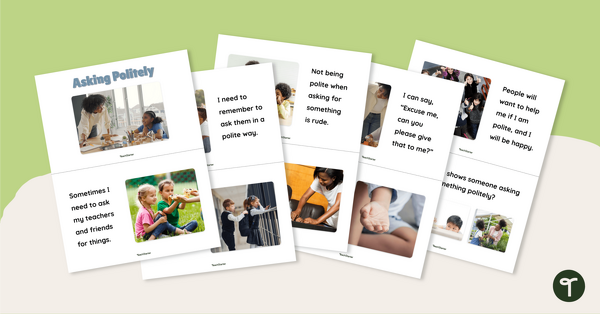
Asking Politely Mini-Book
Help your students learn how to ask for things politely with this social story mini-book.
- Plus Plan
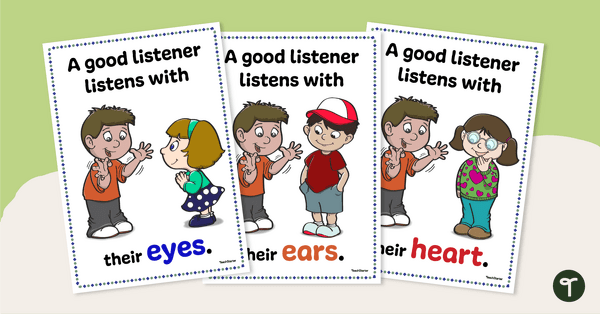
Good Listener Posters
Use this poster to teach your students how to be good listeners.
- Plus Plan
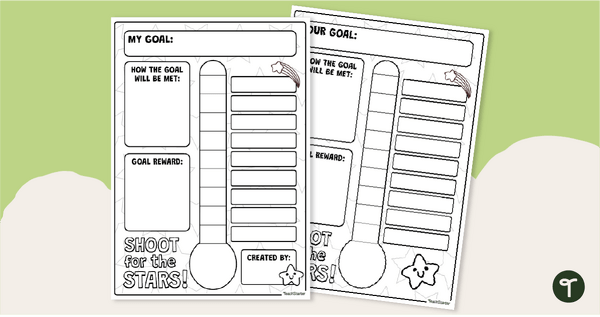
Goal Setting Thermometer Template
Set and track individual and whole-class goals with a printable goal-setting thermometer template.
- Plus Plan
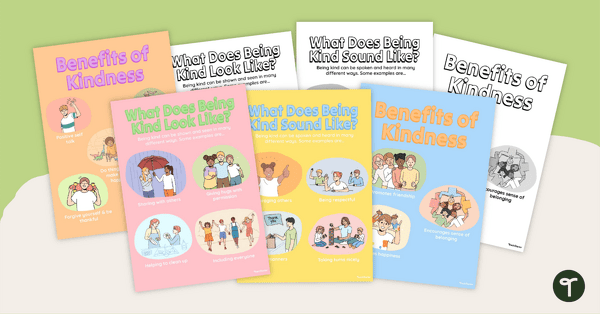
Kindness Poster Set
Display this set of kindness posters in your classroom to help your students understand the power of being kind.
- Plus Plan
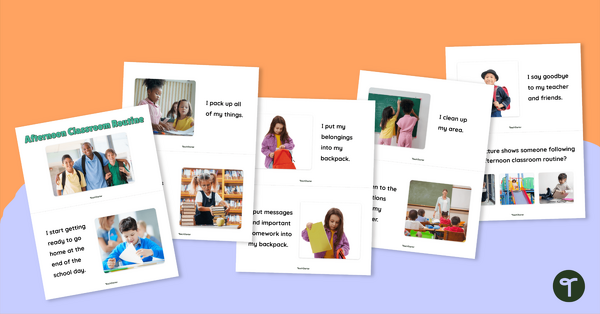
Afternoon Classroom Routine Mini-Book
Review expectations with your students regarding your afternoon routines with this printable mini-book.